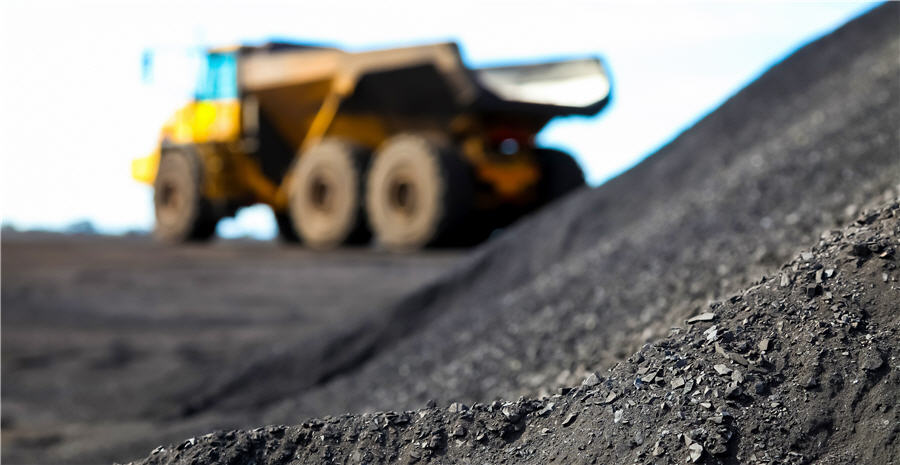Critics Cry Foul at Miners for Using Virus to Bend Rules

March 22, 2020 - A wide range of industries are pleading with federal agencies to waive environmental requirements and ease regulatory deadlines, arguing that the global coronavirus response is making it impossible to satisfy them.
While some requests are reasonable, Tyson Slocum, an official with the watchdog group Public Citizen, said, others amount to “opportunistic pouncing.”
“I don’t think the coronavirus should be used as an excuse to decimate compliance with needed consumer or environmental regulatory protections,” he said.
Trade groups for the affected industries say they are victims of the outbreak and deserve a break.

“The coal industry is absolutely critical to securing a domestic, secure supply of affordable energy,” the National Mining Association said in a letter seeking relief, including a bid to suspend payments for mine cleanups and sick workers. “The fuel security provided by coal reserves at power plants offers resiliency to a system that is bracing for uncertainty.”
Truckers are petitioning the White House to expand an emergency declaration that allowed federal highway safety regulators to suspend some limits on daily driving for drivers hustling to make emergency delivers and ferry medical supplies across the country. Among the requests is an exception of hours of service rules for all freight and a suspension of roadside inspections and weight checks for some loads and carriers, the Owner-Operator Independent Drivers Association wrote in a letter to President Donald Trump on Friday.
Many challenges
“Unfortunately, our members are encountering many challenges that unnecessarily slow the movement of goods, limit the effectiveness of response efforts and jeopardize their personal health and safety,” Todd Spencer, the group’s president, said. “The federal government can take steps to immediately alleviate many of these problems.”
In the case of coal, advocates of the fossil fuel are seeking to revive a stalled proposal for the president to invoke the 70-year-old Defense Production Act to keep money-losing power plants operating. Representative David McKinley, a Republican from West Virginia, said that during the coronavirus pandemic, the government “must take all necessary steps to support the coal industry and keep coal-fired power plants online.”
“During an emergency, it is absolutely critical that affordable, reliable and resilient supplies of electricity are able to support critical infrastructure that is dependent on electricity — and to promote a sense of normalcy,” McKinley said in a Thursday letter to Trump and congressional leaders.
Democratic Representatives Raul Grijalva of Arizona and Matt Cartwright of Pennsylvania decried the coal push, saying in a letter to congressional leaders this was no time for the sector to get a “taxpayer-funded bailout.”
‘Taking advantage’
“The coal industry is taking advantage of the country’s current circumstances to advocate for policies that are completely unrelated to the current crisis,” the lawmakers wrote.
Some oil producers are citing the pandemic and a global crude glut as they ask the president to waive a law mandating only American vessels can be used to transport goods among U.S. ports.
A temporary waiver of that law, known as the Jones Act, “can allow American producers to move domestic products with greater ease within the U.S.,” the American Exploration and Production Council said in a letter sent to congressional leaders last week.
Some U.S. oil refiners also are asking the Environmental Protection Agency to waive a June 1 deadline to shift to cleaner-burning summer-grade gasoline. As nationwide social distancing efforts and some local shelter-in-place requirements take drivers off the road and obliterate gasoline demand, refiners are worried they won’t be able to offload stockpiles of winter-grade gasoline and drain the system in time.
Companies may have “legitimate difficulty complying with environmental obligations as a result of the global coronavirus pandemic,” said Brian Israel and Michael Gerrard, environmental lawyers with Arnold & Porter Kaye Scholer LLP.
“For example, if engineers and operators are unable to work on-site, some facilities may find it difficult to maintain certain pollution control equipment,” as well as storm-water management systems, the attorneys said in a Bloomberg Law essay. Other facilities may struggle to meet deadlines to install pollution-control equipment.
Companies have been successful in seeking to delay or waive environmental requirements at both the state and federal level citing the coronavirus crisis, Israel said in an interview.
“The phone is ringing off the hook,” said Israel, who previously worked as an environmental enforcement attorney for the Department of Justice. “It’s not a relaxation of environmental standards. It’s really an acknowledgment that under the circumstances things are going to have to be a little flexible.”

